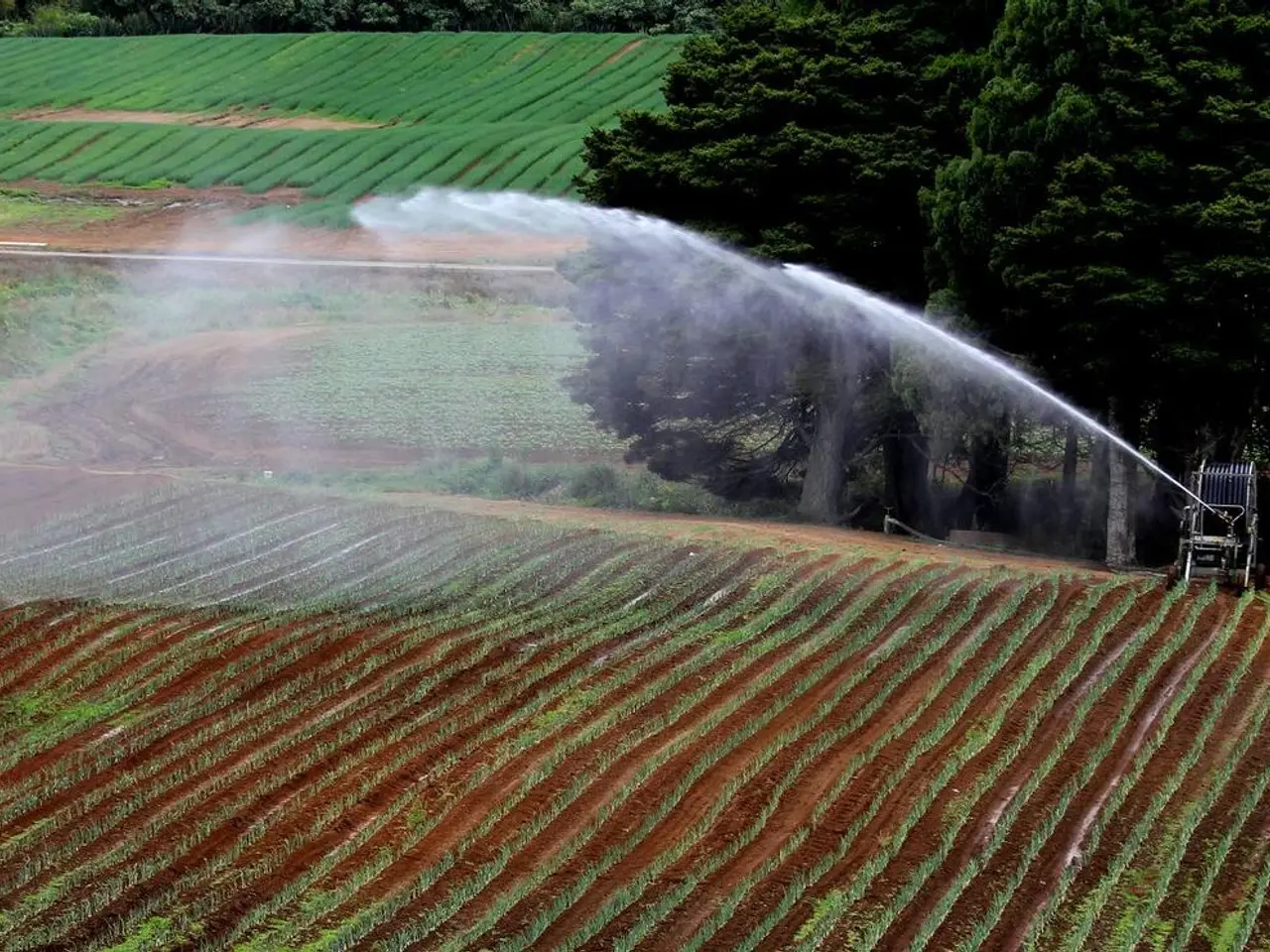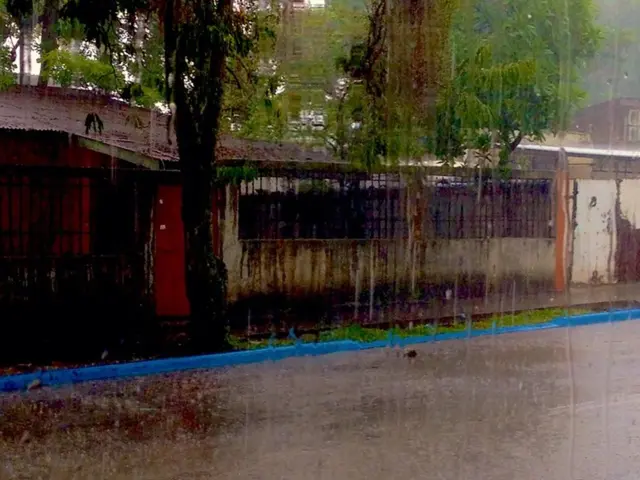Persistent rain poses challenges to cereal farming in Baden
In Baden, Germany, ongoing rain is causing significant issues for the wheat and rapeseed harvest, particularly in key agricultural regions like Baar, Hegau, and Lake Constance.
Challenges Faced
- Delayed Harvesting: Continuous rainfall hinders the drying process of crops, making it difficult to harvest at optimal times. This can lead to postponed fieldwork and logistical difficulties.
- Crop Quality Deterioration: Excess moisture increases the risk of fungal infections and diseases like mildew and rust on wheat and rapeseed. This not only lowers the crop quality but can also reduce market value.
- Soil Conditions: Persistent rain leads to waterlogged and heavy soils, complicating the use of heavy machinery needed for harvesting and causing soil compaction, adversely affecting soil health.
- Yield Reduction: Prolonged wet conditions during critical growth stages may stunt crop development, cause nutrient leaching, or even lodging (crops falling over), all contributing to lower yield.
- Increased Costs: Farmers may face higher costs due to additional treatments for crop diseases and pest control, as well as potential investments in drying equipment if crops must be stored wet.
Regional Impacts
- Baar: Known for its fertile soils, Baar’s crops are vulnerable to waterlogging and nutrient depletion due to excessive rain, impacting wheat and rapeseed quality and yield.
- Hegau: The hilly terrain can exacerbate runoff and erosion problems but also cause uneven distribution of water stress, resulting in uneven crop performance.
- Lake Constance: The proximity to the lake can increase humidity levels, further encouraging fungal diseases in crops during such rainy spells, with moisture lingering in fields longer due to limited drying.
Current State of Affairs
- The grain in wheat, rye, and oats is starting to germinate before harvest, leading to a loss of baking quality and decreased market value.
- BLHV President Bernhard Bolkart has issued a warning about the current state of Baden's agriculture.
- The spread of weeds and volunteer crops may affect the quality and yield of future crops.
- Volunteer crops are spreading during the harvest.
- The situation in the Rhine plain's agriculture is different from the higher elevation regions.
- Particularly affected are higher elevation regions such as the Baar, Hegau, and Lake Constance region, where only 10 to 30 percent of the fields have been harvested so far.
- Farmers in the affected regions are hoping for stable weather.
- The market value of wheat, rye, and oats is decreasing due to the current conditions in Baden's agriculture.
Implications
Persistent rain in Baden’s key agricultural zones is leading to delayed harvests, increased disease pressure, potential yield losses, and economic strain on farmers cultivating wheat and rapeseed. These factors collectively threaten the regional agricultural productivity and require adaptive management strategies to mitigate ongoing and future impacts.
- The persisting rain in Baden's key agricultural zones like Baar, Hegau, and Lake Constance is also affecting the weather conditions, as the excessive moisture is further encouraging fungal diseases in crops.
- Farmers in the higher elevation regions, such as Baar and Hegau, are hoping for stable weather to aid in their delayed harvesting and potentially improve crop quality and yield.








